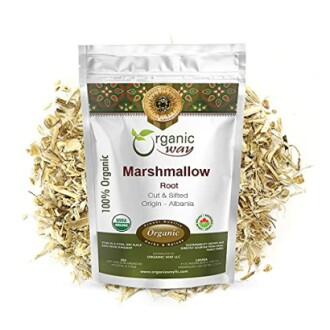
Natural Remedies for Seasonal Allergies
Key Takeaways
- Natural remedies can provide relief for seasonal allergies.
- Herbal supplements and superfoods may help reduce allergy symptoms.
- Always consult with a healthcare provider before trying new remedies.
- Incorporating lifestyle changes can complement your approach to managing allergies.
As the seasons change, many people experience increased allergy symptoms, leading to discomfort and an overall decrease in the quality of life. Seasonal allergies can lead to persistent sneezing, runny noses, and itchy eyes. However, natural remedies offer a potential alternative to conventional medicines. By incorporating herbal supplements and superfoods into your diet, you can help alleviate these symptoms. In this article, we'll explore effective natural approaches to managing seasonal allergies.
Understanding Seasonal Allergies
Seasonal allergies, often referred to as hay fever, occur when the immune system overreacts to allergens in the air, such as pollen from trees, grasses, and weeds. Symptoms can range from mild to severe:
- Runny or stuffy nose
- Itchy or watery eyes
- Sneezing
- Fatigue
- Coughing
It’s crucial to identify your triggers—be they pollen, dust, or mold—to better manage your symptoms. Below, we delve into various natural remedies that can aid in relieving allergy discomfort.
Herbal Supplements for Seasonal Allergies
Herbal supplements can offer a natural approach to decreasing allergy symptoms. Here are some widely-used herbal remedies:
| Herb | Potential Benefits |
|---|---|
| Nettle Leaf | May help reduce inflammation and lower histamine production. |
| Butterbur | Has been shown to mitigate nasal symptoms similar to antihistamines. |
| Marshmallow Root | Known for soothing mucous membranes and supporting respiratory health. |
One excellent option in the realm of herbal supplements is the Organic Way Marshmallow Root. This product is 100% certified and provides pure marshmallow root, known for its soothing properties:
Organic Way Marshmallow Root
A 100% organic herbal tea made from marshmallow root that soothes respiratory discomfort and tastes delightful.
Learn MoreSuperfoods That Can Help
In addition to herbal supplements, certain superfoods can enhance the body's immune system and help fend off allergic reactions. Here are some to consider:
- Turmeric: Contains curcumin, an anti-inflammatory compound.
- Ginger: Acts as a natural antihistamine and can reduce nasal congestion.
- Quercetin: Found in onions and apples, studies suggest it may block histamine release.
Adding Superfoods to Your Diet
Consider incorporating these superfoods into your daily meals to maximize their benefits:
- Add turmeric to smoothies or use it as seasoning in savoury dishes.
- Infuse ginger into hot water for a soothing tea.
- Include fresh fruits like apples and onions in your salads.
Other Natural Methods for Allergy Relief
Besides herbal supplements and superfoods, there are other practical strategies to ease allergy symptoms:
- Stay Hydrated: Drink plenty of water to thin mucus and maintain hydration.
- Close Windows: Keep windows closed during high pollen days, and use air conditioning instead.
- Clean Regularly: Dust and vacuum your home frequently to remove allergens.
- Use a HEPA Filter: Install HEPA filters in your air conditioning system to trap allergens.
Before You Try Natural Remedies
While natural remedies can be helpful, it's essential to consult with a healthcare provider before starting any new treatment, especially if you are currently taking medications or have underlying health conditions. Always check for potential allergies or adverse reactions.
Tips for Managing Seasonal Allergies
- Track pollen counts and stay indoors when levels are high.
- Wear a mask when mowing the lawn or doing outdoor chores.
- Consider nasal irrigation with saline to flush out allergens.
- Maintain a healthy diet rich in vitamins and minerals to boost your immune system.
Conclusion
Seasonal allergies can be a nuisance, but utilizing natural remedies like herbal supplements and superfoods provides a promising way to manage and alleviate symptoms. By adjusting some lifestyle habits and investing in quality products like the Organic Way Marshmallow Root, you may find significant relief during allergy season. Remember that everyone's body is different, so it's essential to find what works best for you.
Pros
- Natural remedies have fewer side effects compared to conventional drugs.
- Many herbal supplements provide additional health benefits.
- Easy to incorporate into your daily routine.
- Accessible and often cost-effective.
Cons
- Some may not provide immediate relief.
- Effectiveness can vary from person to person.
- Limited research on certain remedies.

